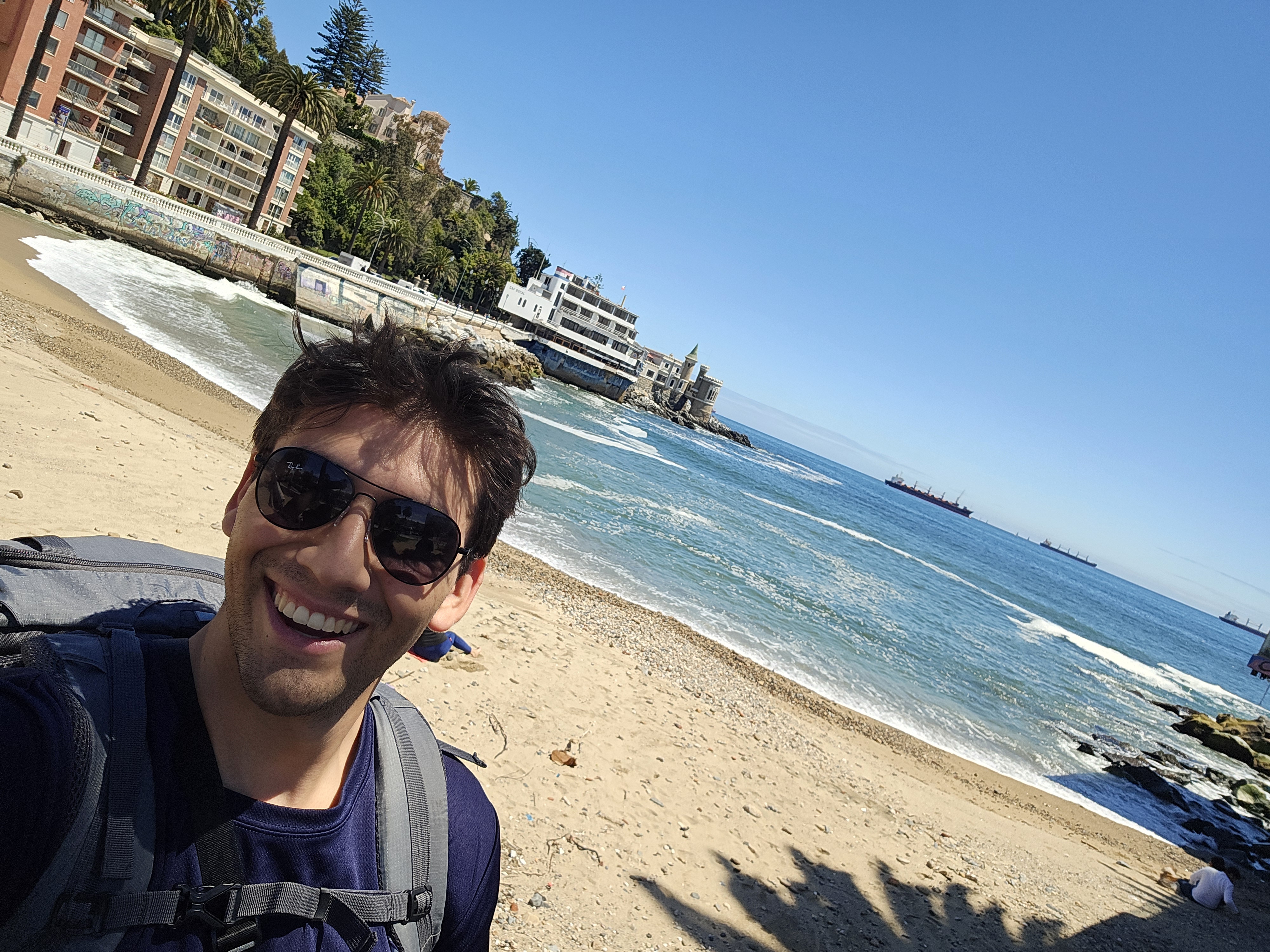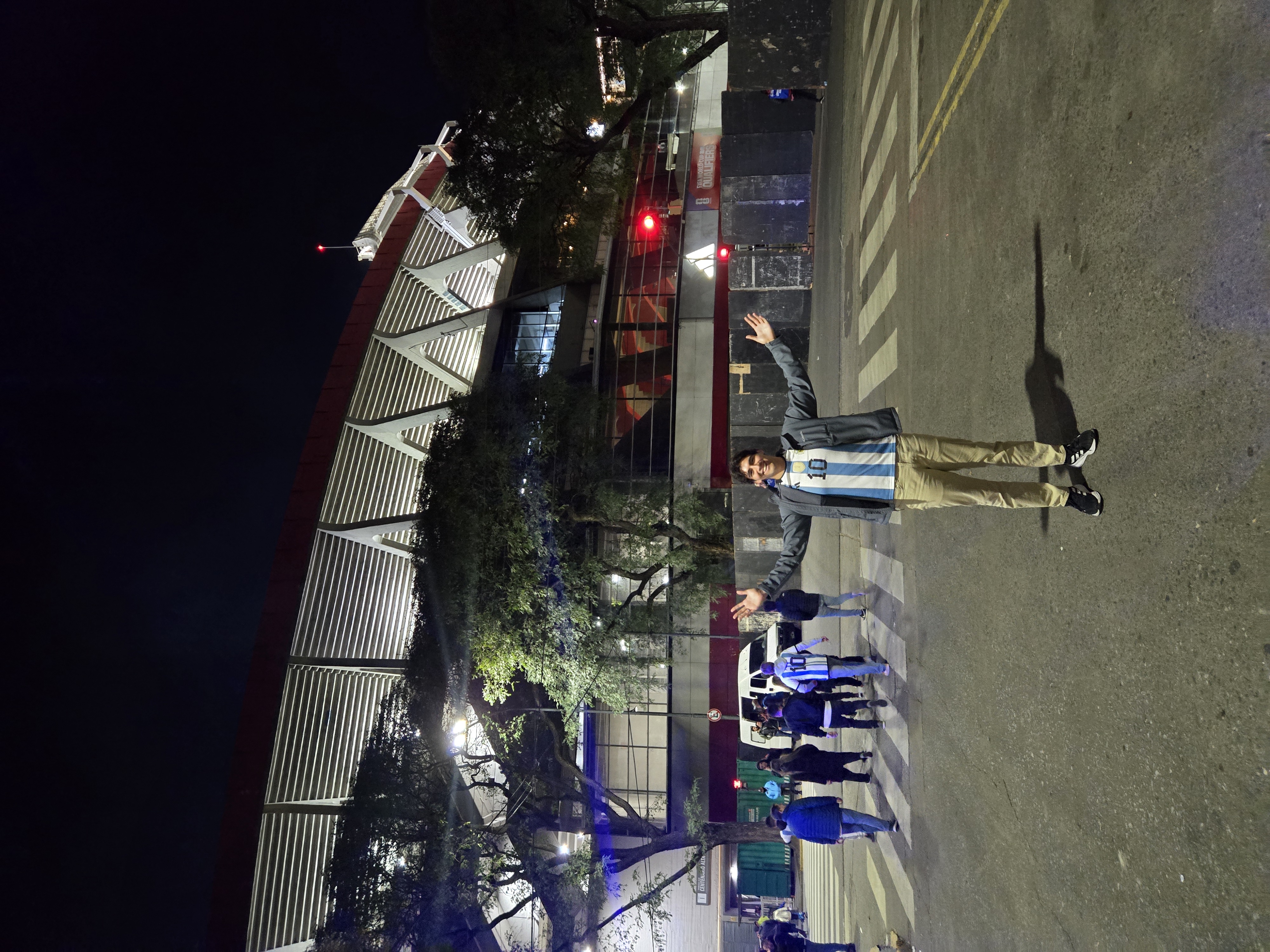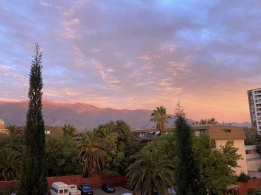Study Abroad
- UCEAP in Latin America
- Global Seminars in Latin America
- UCSD Student Stories Abroad
- Finance Your Trip
Many of our LAS Majors and Minors study abroad in Latin America to enhance their classroom learning with immersive experiences. Read their stories below and then explore where you will go!

|
|
|
|
|
|
|
|
 Oliver Rodriguez traveled to Buenos Aires, Argentina, and Santiago, Chile. He spent 8 weeks in each country studying human rights and cultural memory through UCEAP.
Oliver Rodriguez traveled to Buenos Aires, Argentina, and Santiago, Chile. He spent 8 weeks in each country studying human rights and cultural memory through UCEAP.
He reflects, "In both countries, I had the privilege to learn and hear from essential scholars in the field of human rights. Most notably, Adolfo Pérez Esquivel who won the Nobel Peace Prize in 1980 for his work fighting the Argentine Dictatorship. I was also able to experience the culture in both countries holistically. I am a huge soccer fan and was able to catch various games in Buenos Aires and Santiago. As well as getting to experience what life was like in both cities as I got to know my host families.
I have spent most of the last two years learning about the dictatorships in Argentina and Chile. So much so that I am now working with LAS and Dr. Benjamin Cowan to write my honors thesis regarding dictatorships in South America. I had read countless articles discussing dictatorships and attended various lectures covering the actions of dictators. Many of those lectures covered the "Escuela de Mécanica de la Armada" (The Mechanic's School of the Navy) and how it had been used to detain, torture, and disappear victims of the dictatorship. In Argentina, I had the opportunity to visit this location as it is now a museum. This is just one example of how my studies at UCSD became a reality while abroad. It was an experience incomparable to only studying in a classroom in San Diego. This experience is why I highly recommend that LAS students travel abroad, so they may turn what they've learned in the classroom into reality."
Danicka Leeds spent a year at the University of Chile through UCEAP!

What made you pursue this travel opportunity?
"I've always wanted to study abroad, especially to improve my Spanish communication and writing skills. Ever since high school, I envisioned traveling, particularly to Latin America, given my Mexican heritage. Before this, my only travel experience was to Mexico, so I wanted to stay relatively close to home. Ultimately, I chose Chile through the UCEAP program, where there were only two options for a year-long stay: Chile or Spain. Though I knew little about Chile beforehand, I’m so glad I made that choice — it’s a country rich in nature, history, and culture. Like California, it has incredible diversity, from forests and deserts to mountains and oceans, making it feel familiar yet new. "
How were you able to make it possible?
"A common misconception about studying abroad is that it's too expensive to be feasible. I used to think the same, that it was a dream out of reach. However, it turned out to be more affordable than attending UCSD for a year, especially when you factor in the cost of living. Financial aid covered the majority of my expenses, and I was fortunate to receive the Chris Borton and Betty Tate Scholarships to cover the rest. Additionally, I supported myself by teaching English alongside my studies."
What did you learn?
"I studied at the University of Chile, where I took courses in Linguistics and Social Sciences—all in Spanish. During a long strike in my first semester, I focused on my internship with Fundación Debra, a nonprofit that supports individuals with Epidermolysis Bullosa (EB), a rare genetic disorder causing extremely fragile skin and blisters. This experience exposed me to both the medical and psychosocial aspects of treating chronic illnesses. Beyond academics, I traveled extensively within Chile—my favorite spots being Puerto Tranquilo, Cajón del Maipo, and the immense street art of Viña del Mar and Valparaíso. I also had the chance to visit Argentina, Brazil, and Peru, which broadened my understanding of South America’s diverse cultures and allowed me to indulge in a variety of delicious food cuisines."
What advice do you have for other students interested in studying abroad in Latin America?
"Studying abroad can feel intimidating, but stepping outside of your comfort zone is part of the experience. Maintaining regular contact with family and friends back home can help ease feelings of homesickness, but it’s equally important to fully immerse yourself in the local culture and make connections. Engage with your classmates and embrace new experiences. On a practical note, if you're planning to stay for a year, some countries, like Chile, require a visa, so be sure to start the application process 4-6 months in advance. Even without a visa, it’s still manageable by extending your stay or leaving and reentering the country every 90 days. Also, take advantage of travel opportunities— you get much more out of your experience by exploring the region!"
